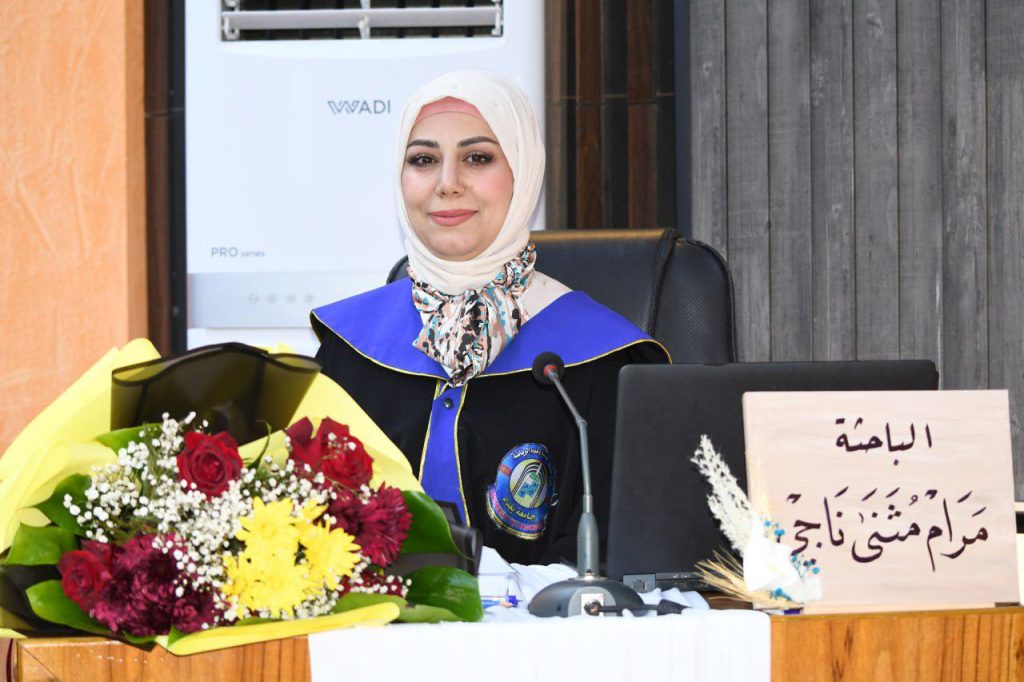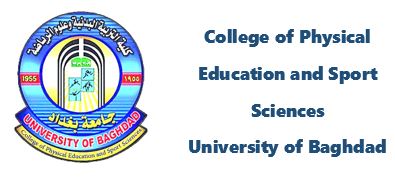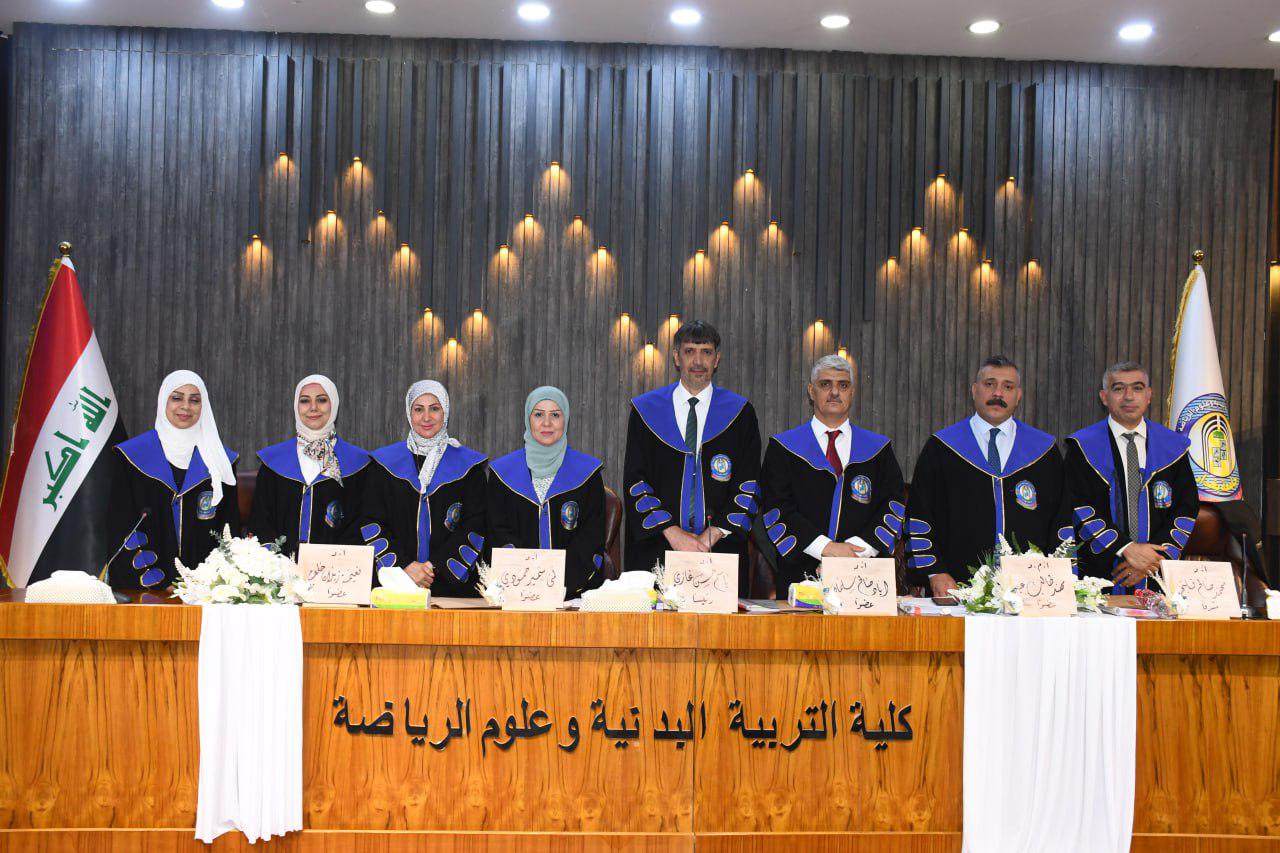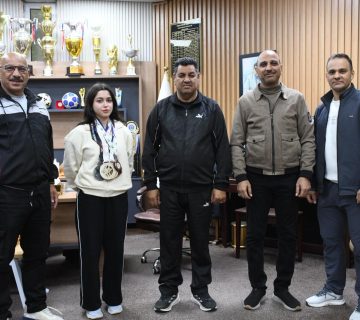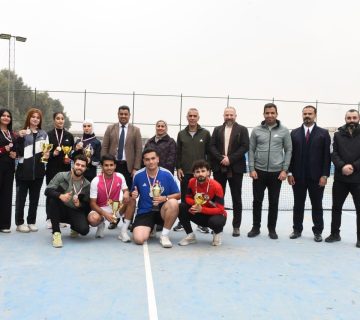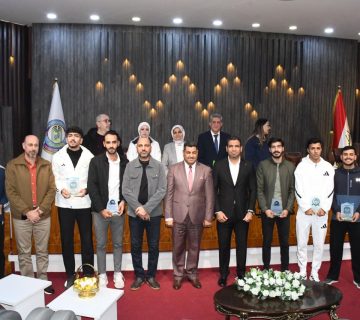A PhD dissertation was defended at the College of Physical Education and Sport Sciences, University of Baghdad, by the doctoral student Maram Muthanna Naji, under the title:
“The Effect of Performance-Similar Drills in Compound Motor Patterns on Learning Some Basic Skills in Mini Volleyball for Children Aged 8–9.”
The examination committee consisted of:
•Prof. Dr. Basim Hassan Ghazi – Chair
•Prof. Dr. Lama Sameer Hammoud – Member
•Prof. Dr. Iyad Saleh Salman – Member
•Prof. Dr. Naeema Zaidan Khalaf – Member
•Asst. Prof. Dr. Muhannad Talib Abd – Member
•Prof. Dr. Khulood Laidh Abdul-Karim – Member and Supervisor
•Prof. Dr. Mohammed Saleh Faleh – Member and Supervisor
The significance of this research lies in its focus on children aged 8–9, particularly third-grade primary school students, and on initiating the learning process at an early age. The study highlights the importance of motor learning and the early development of a strong foundational base for volleyball through the use of compound motor patterns in mini volleyball.
The researcher concluded that the specially designed drills based on compound motor patterns, which simulate basic volleyball skills, had a significant impact on the performance of these skills in mini volleyball. The integration of these compound patterns within training created an engaging and stimulating learning environment for the children, leading to heightened excitement, motivation, and effective skill acquisition.
The objectives of the study were to identify the effect of drills designed around performance-similar compound motor patterns on learning selected basic mini volleyball skills in children aged 8–9, and to design dedicated assessment tests capable of evaluating these patterns and providing measurable data relevant to this young age group.
This work directly contributes to achieving the Sustainable Development Goals, especially Goal 4: Quality Education, by integrating innovative and age-appropriate teaching strategies into physical education. It also aligns with Goal 3: Good Health and Well-being, by promoting early physical activity and motor development through structured sport education tailored to children’s developmental needs.
